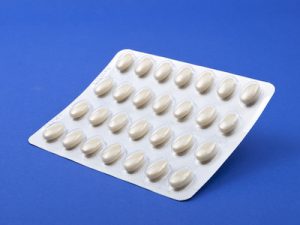As the body declines in the production and secretion of key reproductive and sexual hormones, hormone replacement therapy (HRT) may not always be required.
The Reasons Hormones Dissipate
Hormones are chemicals produced by glands and organs comprising the endocrine system. These substances play a significant role in the body’s growth, as well as numerous other vital functions and processes. One of the most hormone-reliant tracts in the human body is the reproductive system. This system needs steady concentrations of chemicals like testosterone and estrogen to operate properly.
Deficiency Symptoms
A decreased level of almost any hormone is capable of precipitating a host of physical and mental manifestations. The symptoms often depend upon the specific substance in decline. Men and women who experience diminished systemic outputs of substances like testosterone and estrogen are typically afflicted with common symptoms including, but not necessarily limited to, diminished sex drive (libido), mood fluctuations, cognitive function disturbances (difficulty focusing and remembering), sweating, fatigue, weight gain, muscle loss, receding hairlines, skin issues, and insomnia.
Specific Causes
Age is arguably the most significant cause of decreased bodily concentrations of reproductive chemicals. As both men and women age, their bodies gradually produce less of the vital sexual chemicals. All women who reach their late 40s or early 50s experience a natural life event known medically as menopause. This period is categorized by a progressive decrease in estrogen production, which eventually results in the cessation of menstrual cycles and the ability to conceive.
A decline in systemic hormonal concentrations might also be precipitated by a variety of injuries or illnesses. Damage or injuries brought forward by birth defects to sexual organs like the testes and ovaries could interfere with the ability of these structures to produce or synthesize key chemicals. Furthermore, any number of serious health conditions such as cancer, diabetes and several immune system disorders might alter hormonal production.
Hormone Replacement Therapy

HRT is usually costly and may cause specific health risks, which could be serious and in some cases potentially life-threatening. Some of those who have undergone various forms of HRT have developed cardiovascular problems like strokes and blood clots. Additionally, scientific research has shown that women who undergo estrogen replacement might place themselves at greater risk of developing some forms of cancer.
Natural Alternatives to HRT
Many medical professionals suggest HRT as a last resort and often attempt to identify natural methods that can help patients restore sufficient systemic hormonal concentrations. Such methods include:
- Regular Exercise – Routine physical activity stimulates blood flow and increases production and secretion of specific hormones. Moreover, exercise can help maintain bodily strength and ebb the impact of weight gain and muscle wasting.
- Maintain a Proper Diet – Hormonal concentrations can be influenced by the foods that are regularly consumed. Medical professionals and nutrition experts suggest that systemic concentrations may be improved or regulated by adhering to dietary practices that include not over- or undereating; limiting consumption of sugar, bad fats and processed foods; and increasing consumption of protein, fish and fiber.
- Partake in Stress-Reducing Activities – It may be impossible to completely avoid stress. Healthcare professionals, however, opine that reducing one’s exposure to heightened tension levels can be critical to hormone regulation. When people experience chronic exposure to significant tension, their bodies release chemicals like cortisol and adrenaline. Increased concentrations of these substances may reduce the amount and effectiveness of chemicals like estrogen and testosterone.
- Obtain Adequate Rest – During sleep, the body releases certain hormonal substances. A lack of sleep inhibits this process and could eventually result in deficiencies. Most medical professionals recommend obtaining anywhere from seven to nine hours of sleep.





